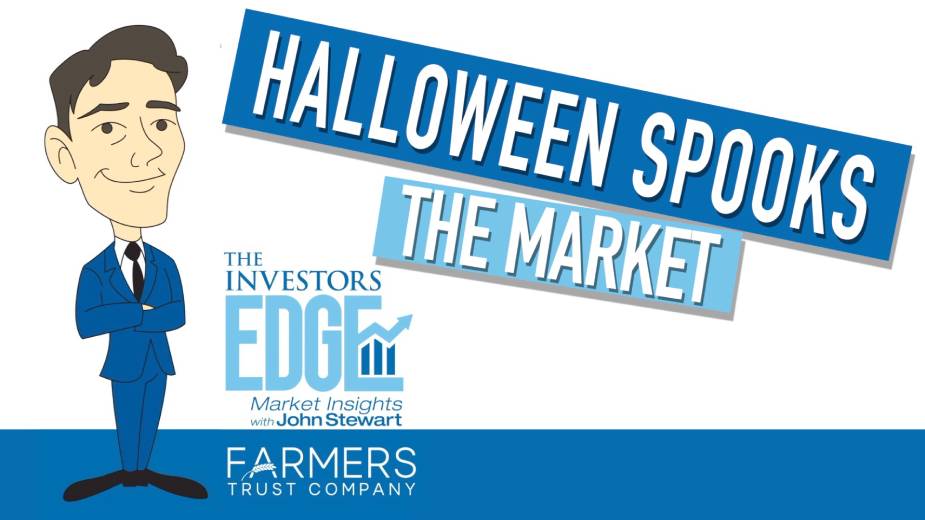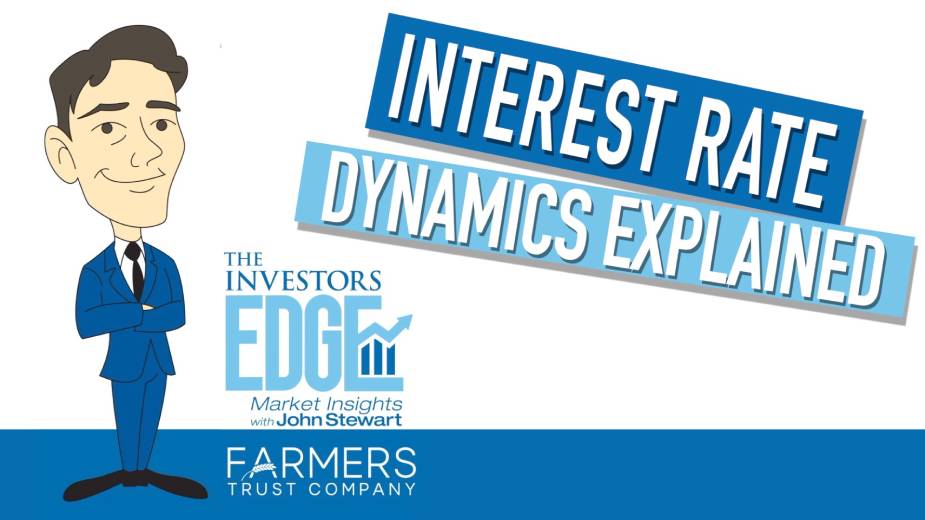Invest to Fit Your Personality | The Investors Edge
By John Stewart, chief investment officer at Farmers Trust Co.
Week in Review: Earnings Season Underway
Corporate earnings season is underway again as companies report results for 2023’s first quarter. As they usually are, the largest financial institutions were first out of the gate to report with the likes of JPMorgan Chase, Citigroup, and Bank of America among others.
The initial read has been better than feared, especially given the recent banking turmoil, as most of the early reports have been beating expectations. Keep in mind, however, that expectations have dropped significantly since the beginning of the year.
It is actually the norm for analysts to lower earnings expectations as earnings season approaches, then allowing companies to leap over the lowered bar.
It’s still too early to draw any significant conclusions from this earnings season, but the key will be whether or not the estimates for the second and third quarters drop by more than they did for the prior two quarters, which was a drop of 5.5%.
Right now, corporate earnings are holding up better than feared, but the majority of companies still have yet to report. Focus less on whether they “beat” expectations, and more on whether their expectations for the rest of 2023 are being raised or lowered.
Featured Insight: Invest to Fit Your Personality
You know how people talk about how 90% of the game of golf is in between your ears? If you’re not familiar with golf, the same can be said for most sports as well as almost any endeavor in life.
Investing is no different. It is primarily psychological in nature. It is not so much what you decide to buy that matters (although selecting good investments obviously helps), but how you respond to what happens after the fact.
Most people are psychologically hardwired to make bad investment decisions because they invest emotionally, buying when they feel positive (after something rises in price) and selling when they feel negative (after something falls in price). This results in a money-losing buy high and sell low dynamic.
In order to increase your odds of success, create a portfolio that will keep your emotions in check. For many people this means taking less risk. You want to have a portfolio that won’t scare you into selling your assets just because the stock market falls by 10%. If you’re a risk taker that can handle the pressure, growth-oriented assets will be more volatile, but can result in better long-term returns.
Looking Ahead: Debt Ceiling Coming into Focus
The debt ceiling debate started in January when Republicans took over the House of Representatives and the Treasury reached its statutory borrowing limit. Back then, however, the discussion was a bit premature, as the Treasury had plenty of strings it could pull before effectively running out of money.
The original estimate was that the Treasury could use these so-called “extraordinary measures” to hold off on the need to issue more debt until sometime between June and August.
We should learn more about this debt ceiling deadline within the next week or so as data regarding tax receipts begins rolling in. In addition, Republicans are expected to have a debt ceiling bill passed in the House by the end of next week.
While we believe a deal will ultimately get done to stave off a debt default, the process of getting from point A to point B could get a bit messy. Let the game of chicken begin!
Copyright 2024 The Business Journal, Youngstown, Ohio.


